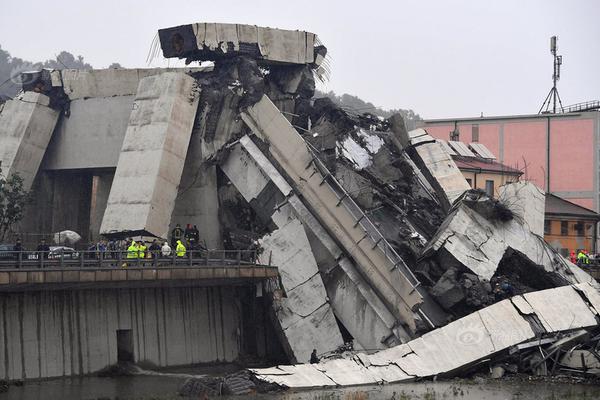Junk Merchants
Is the paper economy shriveling up? Wall Street deals in red ink. | Russ Allison Loar
Wall Street deals in red ink. | Russ Allison Loar o
l
u
m
n
s
With America’s political order?settling into a seemingly permanent state of crisis-on-autopilot, it is just a matter of time before the paper economy follows suit. Last week’s dramatic Wall Street selloffs saw the Dow Jones roster shed around 4 percent of its collective value. Tech stocks, always at the frothiest tip of investment bubbles, took an especially pronounced beating. Jeff Bezos, the Amazon impresario, lost (as of last Wednesday) a cool $9.1 billion in net worth, more than triple Mark Zuckerberg’s bracing $2.5 billion market bath.
But just as reliably as investors clamor to a stampede of wealth destruction, market savants and the shills of the business press adjourn to their Bloomberg terminals and CNBC podiums to issue reassuring directives about the soundness of the market’s overall direction, bumpy selloffs and localized panics notwithstanding. When a similar downturn wracked Wall Street in February, Bloomberg editor Robert Burgess insisted that all was well, so far as underlying fundamentals and such were concerned: corporate profits were outperforming expectations, the WTO had revised its global growth forecasts upward, and traditional shelters against panic such as Treasury bonds were not seeing appreciable gains.
All of which proved true enough—until it didn’t. The October market swoon has, in fact, already seen boosts in Treasuries and gold prices, suggesting that this bout of jitters might have some basis in broader economic conditions. More worrying still is the massive overleveraging of the corporate economy, which according to a recent report by Burgess’s employer, has seen more than $1 trillion in investment money careening toward junk-bond status. Indeed, the main reason all this merger-driven debt hasn’t received a forthright junk rating is due to the reliably corrupt practices of the industry-captive debt-rating racket. In their survey of the fifty largest mergers-and-acquisition deals of the past year, Bloomberg’s Molly Smith and Christopher Cannon noted that “by one key measure, more than half of the acquiring companies pushed their leverage to levels typical of junk-rated peers. But those companies . . . have been allowed to maintain investment-grade ratings by Moody’s Investors Service and S&P Global Ratings.”
The paper economy has been on a stupendous debt binge since the corporate tax cuts the Trump administration has visited on the financial sector for no good earthly reason.
But of course, few economic commentators are talking about the sink hole of shitty debt opening up beneath the Dow Jones trading floor—any more than they were inclined, circa 2007, to wonder whether housing prices would succumb to the laws of gravity. No, the flight of investment capital merely marks the onset of a fresh round of inflation jitters among our titans of finance, as the Fed prepares to further nudge up interest rates. After operating with a virtually unlimited supply of free money over the past decade, the masters of our financial universe are adapting to a reconfigured investment environment the best way they know how—by hoovering up all available cash and going home to count their T-bills. Market watchers also claim that investment headwinds are stirring up from political quarters, with President Trump’s trade war with China and the likelihood of a Democratic takeover of the House heading up this impressionistic list of possible culprits.
Such wishful trend-spotting may play well on cable news outlets, where it gets teed up alongside Trump’s pronouncement that the Fed has gone “crazy” in its bid to rein in the flow of free money to Wall Street. But the pundit sideline of market phrenology, like Trump’s camera-ready tantrums, pointedly overlooks the stubborn structural forces that are now causing our heroic capital flows to seize up in concert. It’s not simply the M and A sector, but the paper economy at large, that’s been on a stupendous debt binge since the serial corporate tax cuts the Trump administration has visited on the financial sector for no good earthly reason. (Apart, that is, from the seeming across-the-board allergy to tax liability shared by both the president and his hidden-genius son-in-law.) Wall Street has indeed been so flush with unearned pelf that its single largest expenditure has been in corporate stock buybacks—a boondoggle for the investment class, to be sure, but a key accelerant of inequality in the actually existing productive economy. And the Trump administration’s debt-driven subventions to the plungers on Wall Street have come in the midst of an already overheated investment economy—a daft counter-cyclical measure that greatly increases the likelihood of a bear market settling in for the longer term. The Trump economic team has essentially sequestered federal regulators from employing genuinely effective Keynesian measures to expand credit in the real economy in the event of a bona fide Wall Street shitstorm.
In other words, whether last week’s stampede proves to be the overture to worse market reckonings to come, or what our thought leadership class is now fond of calling a blip, it already stands out in the annals of investment chicanery for its sheer gratuitous awfulness. The stock market has never had anything more than a notionally symbolic relationship to the underlying conditions of the American economy, but here at the summit of neoliberal policy delusion, it’s been re-engineered into a full-blown monument to social cruelty for its own sake—something too crass and gruesome even to qualify as a conceptual art installation. The scandal won’t so much be in the magnitude of the next great recession, when and if it comes, but rather in the predatory status quo we’ve come to accept as the picture of economic health.



















